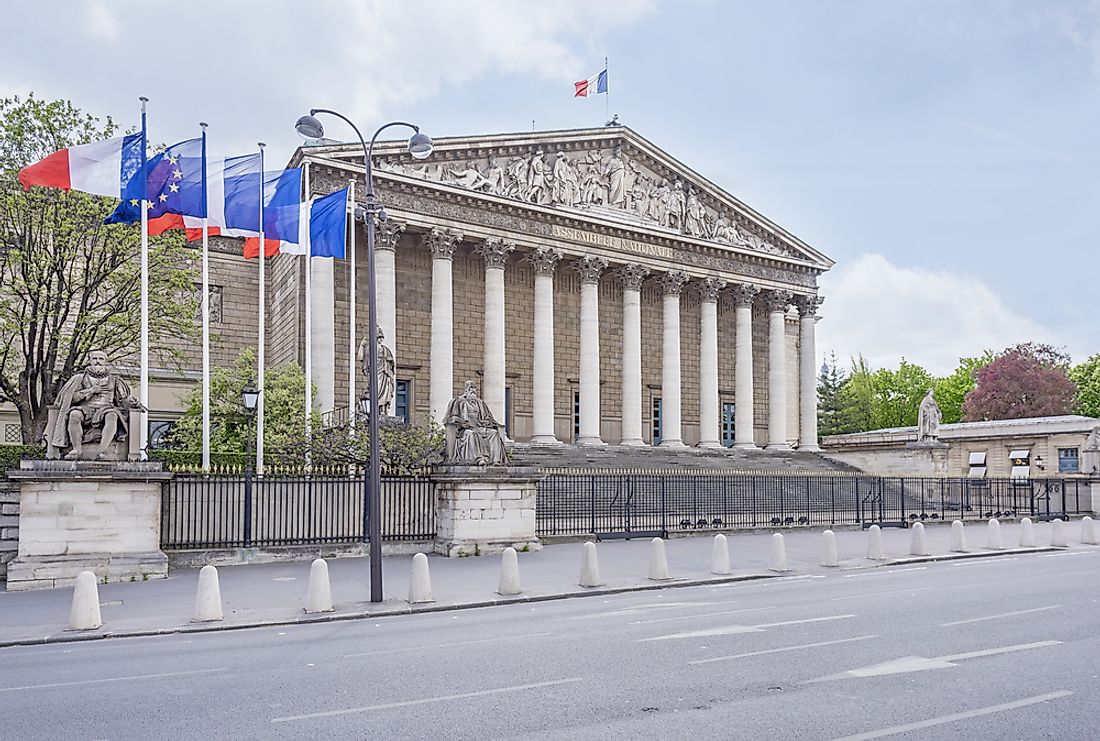What Type Of Government Does France Have?

The Government of the French Republic is composed of the Prime Minister who is the head of the government and the ministers. A semi-presidential system of government characterizes the Republic of France, where both a president and prime minister shares executive powers. The framework for the current government of France was laid out in the 1958 constitution of the Fifth Republic. The constitution was largely founded on the principles of General de Gaulle.
President Of France
The President of the Republic of France is elected through universal suffrage for five years, limited to two terms. The French President is the supreme commander of the military, and he/she determines the broad guidelines for defense. The President’s chief role is to determine government policy with the help of his Council of Ministers. The President appoints the Prime Minister and approves the appointment of the Ministers. The current president is Francois Hollande who was elected in May 2012.
Prime Minister Of France
The President appoints the Prime Minister of France, and his/her position can be revoked through a censure motion by the National Assembly. The Prime Minister, after appointment, forms the government by appointing ministers. The proposed ministers have to be approved by the President. The Prime Minister is mandated to direct the actions of the government and to coordinate ministerial and governmental actions. The prime minister ensures that the ministers do not undertake contradictory measures and he/she arbitrates in the case of conflicts. The Prime Minister oversees the implementation of laws and national defense. The current prime minister is Manuel Valls who took office on April 1, 2014.
Council of Ministers
The members of the cabinet are appointed by the President after they are proposed by the Prime Minister. The Ministers are entrusted to oversee their individual ministries and to implement government policy. The Council holds weekly meetings which are presided over by the President. The cabinet also proposes legislation to parliament through bills and supervises public legal entities operating under their ministries’.
Parliament Of France
France has a bicameral parliamentary system made up of the National Assembly (lower house) and the Senate. A total of 577 Deputies are elected to the National Assembly every five years by individual districts. Members of the Senate are elected by an electoral college, comprised of district council members, deputies, and municipal council members. The 348 Senators are elected for a six-year term. Members of Parliament are elected for two rounds during the election. An aspiring candidate is elected on the first round when he/she accumulates an absolute majority of total votes. The second round is mostly a runoff between two candidates.'
Judiciary Of France
France has a strong independent judiciary which oversees the judicial system’s operations. Judges of the Court of Cassation are appointed by the President after nominations are put forward by the high Council of the Judiciary. There is a nine-member constitutional council which ensures the constitutionality of proposed legislation or decrees.
Administration Of France
France is divided into 22 administrative regions, each governed by an elected regional council. The council is mandated to stimulate social and economic activities. The 22 regions are further broken down into 96 departments, the governance of which is mandated to the elected general council. The departments are further divided into districts and communes. The communes are governed by the mayor and undertake municipal responsibilities.











